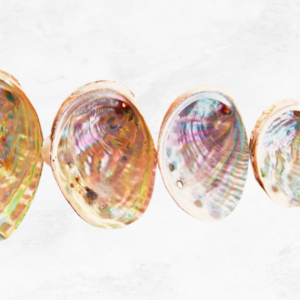
To Speak is to Be Misunderstood: On Parenting and Parents
Minna Zallman Proctor Investigates the Pleasure of Not Belonging
“People remember what they can live with more often than how they lived.”
–David Carr, The Night of the Gun
![]()
My boisterous children are lovable and brilliant. They travel well, sit still for manicures, they say things like “Mommy, I don’t want you to waste your money on that.” My baby girl has plump thighs, rosy cheeks, and curls just like Shirley Temple. She calls mascara “eye stylish” and wants to wear some too. My son is built like a reed. His hair is a sandy beach shag and his big brown eyes glimmer wetly with soulfulness. But my children, like all real children, have their dark sides.
My daughter is heavy; not fat but dense, uncomfortably dense. She is a medicine ball. She is poured concrete. I tried attachment parenting with her, I tried babywearing—which was supposed to make her confident, self-possessed, individuated—but her weight was too much and I got a hairline fracture on my left hip. So she is strong and confident, that is her nature, but she isn’t individuated—she won’t let me go. She clings to my limbs. If I sit down she climbs on my lap. If I kneel down she climbs on my legs. If I bend down she lunges, wraps her steel trap arms around my neck, and says “I want Mommy.” She screams if I leave the room. She has a tantrum if I tell her to let Daddy brush her teeth. She punches her brother when he tells her, “This is a pretty dress you can wear today.”
“I want Mommy,” she howls as she watches blood stream from her brother’s chin. All she wants is to be picked up and cuddled like a three-year-old, carried when she’s tired, swept from the sidewalk when she falls. She wants to be a baby just a little longer but she’s too heavy so she can’t.
At six years old, my son is wound 40 degrees past his breaking point. This is how it works. You say, “Time for dinner. Turn off the TV and wash your hands.” He says, “Okay,” and he gets up and turns off the TV and trips gaily into the bathroom to wash his hands. He returns just as gaily, flapping his damp hands in the air. He leans into his chair and asks, “What’s for dinner?” You answer, “Bacon cheeseburgers,” and in an instant his face crumples, a crescendo wail of agony moves from deep in his belly out through his mouth, nose, and ears too. He hurls his face down onto his arms and sobs.
“My darling,” you say. “What in the world is the matter? There’s bacon. There are cheeseburgers.” He lifts his face up, it is vermillion, glistening with tears and snot, all flowing steadily down his chapped cheeks. “That is not what I felt like eating.”
Revealing to him each morning that there is in fact school today provokes the same reaction. Revealing to him once in a blue moon that we have all spent the day together, eaten out, seen friends, gone to a street fair, picked apples, attended a birthday party, met a nice dog, played soccer, and bought him a harmonica at the toy store—and now it is bedtime, and there is no time for TV, provokes the same reaction. “But that’s not fair,” he weeps. “We never get to watch TV.” I always rush to his side when he dissolves like that, cuddle him, beg him not to whine. I know that he is really crying because I divorced his father.
Assuming that at some point their skin will harden and not glow; their bodies will smell; they will not live here; they will not be able to confirm my pure, uncomplicated love for them every day. Assuming all of this injury that is sure to come, do you think it would be all right to write a memoir about them? I wouldn’t use their real names?
Though even if I did, it wouldn’t mean that you know them—or that I understand them yet myself. Someday they will blame me for mistakes I already can’t undo. I can’t write a memoir about them. I can only write my own stories, and hope that if I’m very careful, the only person you’ll misunderstand is me.
I’ve realized definitively that every person’s story is partial. By which I mean that every story leaves things out—a lot of things; there aren’t enough pages in the world to hold everything. And by which I mean, it’s subjective. I can only tell my version of my story. That means that everyone in my story is misrepresented. I’ve come to also understand definitively that there is nothing more terrorizing than being misrepresented, because its consequence is being misunderstood. There is nothing more agonizing in human relations than being misunderstood—your heart, intentions, aspirations, expressions, failings. There’s no way that other people’s stories, their versions of events, don’t misunderstand you. “Le langage est source de malentendus.” All of the unsent love letters in my storage boxes are earnest, delirious, and incomprehensible attempts to explain myself.
As teenagers, I think we experience a unique (and somehow developmentally appropriate) claim on being misunderstood. I certainly did, and was. Yet I had the most exceptional curveball thrown at me right as I was entering the Hellmouth of adolescence: my mother took my sister and me away to Europe for her sabbatical year.
We first spent the summer in the South of France, staying in apartments that her college used during the year for their study abroad program. While we were there, we walked, ate, looked at fountains, and took French lessons at the local university. A friendly neighbor, one of the only people in the small town who spoke English, made a pass at me. “We don’t have to tell my wife. We don’t have to tell your parents.” He was elderly by my standards. I was horrified and insulted, but also I felt betrayed—because upon our arrival the neighbor had, in his sturdy English, encouraged us to think of him as our guide. So late at night after his unwelcome overture, my sister and I, consumed with indignation, threw old fruit and eggs at his windows. He woke up and started screaming out the window that he was going to call the police. “I know who you are!” he shouted in English. We crouched and giggled soundlessly against the wall below the open window in our dark apartment. We were homesteaders in the wild west, fending off the band of outlaws. Our pa’s farm was all we had left.
The next morning, he went to our mother and complained. He insisted we apologize and clean up the mess. I refused to apologize, but I did get dressed up in my fanciest dress—a deep rose-colored silk with puffy sleeves that I’d worn to my sister’s bat mitzvah—and armed with a bucket and sponge went down to the street below his window and scrubbed the sidewalk, singing loudly as I scrubbed, “Nobody Knows the Trouble I’ve Seen.” My voice echoed preposterously through the tiny stone street.
My mother wanted to spend this sabbatical year in Florence, Italy, because that was where she had lived as a young woman. She had lived one year there on a Fulbright to study with the great Modernist composer Luigi Dallapiccola. She fell in love and extended her stay, returning to her parents’ home in Philadelphia only for a few months in the summer to earn money. She came back to Florence planning to get married and live there forever. But she’d met my father during that summer trip home and they’d fallen in love. He proposed to her by mail. She packed up her cat, Mozart, and returned to America to live there forever.
My mother was a Virgo. She arranged everything around her prettily, found organization in chaos and art in everything. She was stubborn but not overly concerned with proving herself to anyone but herself. She didn’t follow rules; I don’t even think she heard rules or knew that they applied. Her greatest battles were with herself—her emotions, body, behavior—and with us, her two daughters, by extension. Extension of herself. In the way she tended to narcissism, she tended not to separate the two of us from herself and her battles. Her love was fierce, almost romantic, uncomprehending, and greedy.
My mother was making it up as she went along. We drank powdered milk for the first eleven years of our lives, after which we converted to cream. She thought real milk was too fattening for us when we were small, but would pack butter sandwiches in my sister’s lunch. Big greasy slabs of butter wedged between two slices of pumpernickel.
She didn’t make friends with other parents, and I remember so often wishing she would because then (to my mind) she would understand better. She would know what was normal behavior for girls of our age. I suppose I was envious too of all the suburban houses with packaged snack foods and cable television. Kids who got clothes from department stores and belonged to soccer teams. I was convinced that it was a good idea to have a pantry stocked with canned goods in your finished basement in the event of nuclear holocaust. I probably liked the orderly plenitude of a good bomb shelter—so unlike our life of dust bunnies and hardwood floors, smelly cheeses, and old furniture.
Once upon a time I had so many stories about my mother. I felt as if I were formed of them—things my mother did or said, ways I reacted, and how she reacted to my reactions—and it all seemed terribly broken and vital. Her mother died when she was thirteen, so what did she know about being a mother to teenage girls? She’d never had one herself. Now I’m a mother wondering what I know about being a mother and also making it up as I go along. Those stories don’t hold the same sway over me that they once did. I no longer feel like I’m made out of her, or living in her footsteps or despite her footsteps. Now it’s her absence that dominates.
After the summer in France, we moved to Italy for the year. I started studying Italian at the American School of Florence. Almost instantaneously, I lost all of the handy French phrases I’d learned over the summer. I have no instinct for foreign languages, and could never run drills through conjugations and vocabulary the way you’re supposed to. If a foreign language was ever going to make sense to me it would be because I understood it, not because I’d memorized some corresponding word. I abandoned the idea that I was going to learn Italian in class, or even at all. I found refuge in letting the world surround me, peacefully, incomprehensibly. In other words, I spent almost all of that year in Italy never speaking Italian. I just listened instead. I loved the way it sounded almost as much as I loved the green air of Tuscany, the hills, the ancient damp houses, and the way everyone talked to you whether you answered them or not. I loved being a foreigner, the constant sense of unfamiliarity that supplanted all of my expectations and disappointments. For a year, I didn’t walk around with the bitter feeling that life wasn’t what it was supposed to be. I didn’t understand and I wasn’t understood—or misunderstood.
That year, we lived in a little apartment over the chicken coop adjoining the barn of a vacated aristocratic property in Chianti. In addition to chickens, there were two large gray birds of a variety I’d never seen before. They tried to waddle away one morning while my sister and I were waiting for the bus that took us to school and the groundskeeper came running after them, shooing them off the road back toward the barn. “What are they?” my sister asked in her best schoolgirl Italian. “Ducks,” he answered. “But they are dumb ducks. They don’t know how to talk.” Like me, I thought. “They just spit, chtth . . . chtth.”
I didn’t want to leave Italy when the year was up and seized every opportunity I could to return. I saved up money and visited at Christmas, then the summer, then my junior year abroad, then I moved there after college thinking I would live there forever. My mother started coming back too, and after her parents died, she figured out a way to buy a small house in the Casentino, about an hour east of Florence through mountain roads. It was her summer house and my base of operations. When I moved to Italy again after 9/11, I stayed in her house. That sweet unfamiliarity wore off without me even noticing around the same time I stopped needing to disappear, and I realized somewhere along the line that I had learned Italian—not from a textbook, I just knew it. The pleasure of not belonging, however, never wore off. I was always a visitor, a foreigner. It was, I think, my fortress against being misunderstood.
Minna Zallman Proctor
Minna Zallman Proctor is a writer, critic, and translator who currently teaches creative writing at Fairleigh Dickinson University, where she is also editor in chief of The Literary Review. She is also the author of Do You Hear What I Hear? An Unreligious Writer Investigates Religious Calling and has translated eight books from Italian, including Fleur Jaeggy’s These Possible Lives (forthcoming from New Directions in July 2017). She lives in Brooklyn.



















